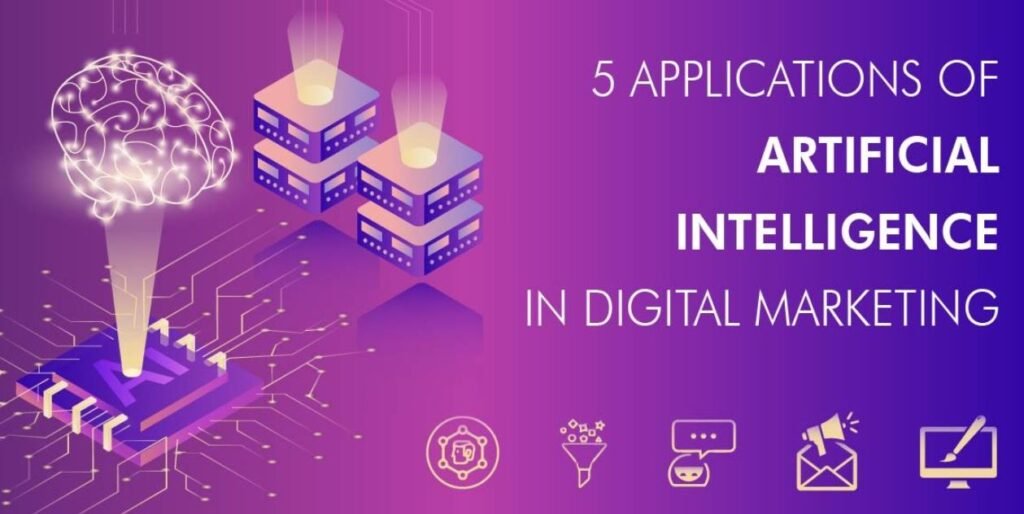The machine learning is an increasingly important ingredient of digital marketing strategies. This technology has the power to simplify our strategy and allow us to go further than ever, but we do not always realize its full potential.
To better understand what machine learning is and how to apply it to grow your brand, I want to share with you these 5 ways that machine learning is changing digital marketing.
Table of Contents
Machine learning, artificial intelligence and digital marketing
Let’s start by clarifying the key concepts: what is machine learning, and how is it different from artificial intelligence? And it is that although sometimes both terms are used interchangeably, they are not the same.
We call artificial intelligence the ability of machines to imitate the cognitive functions that we usually associate with humans, such as solving problems, reasoning, representing ideas, making plans, processing natural language and a long etcetera.
Within artificial intelligence, there is a particular branch that is machine learning or machine learning. In other words, machine learning is a type of artificial intelligence.
The machine learning is the ability of machines to learn from the data we provide them. It is based on automating the creation of models from data analysis; the computer knows from the information it analyzes by identifying and recognizing patterns, and this enables it to make data-driven decisions.
In the world of digital marketing, there are multiple applications of artificial intelligence and machine learning, which are becoming more important as we advance in marketing automation. In the next section, we will see some of them.
5 applications of machine learning in digital marketing
1. Opinion analysis
One of the significant challenges of artificial intelligence is to understand and correctly interpret human language.
It is relatively easy for us to know how another person is feeling from their voice, their facial expressions or their body language. Also, we understand aspects such as irony or sarcasm. And to some extent, these skills also help us to interpret the intention behind a text.
The new models of machine learning are working to understand the texts written by humans and whether they reflect a positive, neutral or negative opinion. And of course, this has applications for the world of digital marketing:
- Analyze customer opinions about a product or service quickly and effectively.
- Assess the mood of a customer who goes to a helpdesk (for example, through a chatbot ) and tailor the response accordingly.
- Identify the most frequent complaints from users about a product or service based on their comments on social networks.
- Quickly detect and prevent possible online reputation problems for a brand.
2. Predict and prevent dropouts
We know that it is much easier to retain a customer than it is to get a new customer, so digital marketing strategies must include solutions to improve customer churn rates.
Machine learning analyzes customer data to create algorithms that can predict customer behaviour and identify users who are at high risk of breaking into competition shortly.
By combining this capability with marketing automation capabilities, we will be able to create a system that identifies users at risk of abandoning and sends them personalized messages to re-engage with the brand.
3. Improve the customer experience
Machine learning has many applications in customer experience, for example:
- Guide potential clients through a buyer’s journey that is tailored to their individual preferences.
- Guarantee stock in online stores by sending alerts to the warehouse and offering alternative products to customers if necessary.
- Make personalized recommendations based on customer data to increase conversions. This is one of the most exciting applications of machine learning since the system is capable of analyzing a large amount of data on preferences and refining its models more and more depending on the reactions of users.
[Also Read: How does Facebook Ads use Machine Learning to deliver the ads?]
4. Create hypersegmented advertising
The segmentation can mean the success or failure of a marketing campaign. If we can target the right audience and get precisely what they are looking for, it will be much easier for us to generate conversions.
Not only does machine learning help marketers target their ads more efficiently, but it is also able to personalize ads based on customer experience and predict the type of content that will be most effective with a particular buyer. Thus, when two users visit the same website, each of them will see different ads based on their interests and previous interactions.
By automating the entire process of segmentation and personalization of content, machine learning ensures that each user sees the ad with the highest probability of generating a conversion, and the costs of creating and optimizing digital marketing campaigns are reduced.
5. Improve user security and privacy
The digital marketing strategies based on data raise the problem of balancing the personalization of communications and the need to protect users ‘ privacy and security of your data.
Artificial intelligence and machine learning propose a possible solution through biometric identification, which is one of the safest mechanisms for capturing and sharing data.
The result is that more data can be exchanged more securely, making it easier to have more insights and make better decisions. And at the same time, biometric identification allows consumer data to be much more secure and protected.
[Also Read: What should a perfect marketing agency brief include? ]

